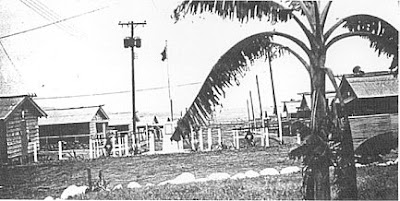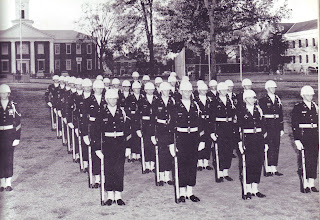
Fifty years ago my family gathered to celebrate my high school graduation in the tiny town of Marion, Alabama at an historic but little-known private military school named Marion Military Institute.
Marion, or MMI as we called it, was the kind of Southern military prep school parodied in books and movies as a place where abusive older cadets and uncaring staff mistreated younger students. Sorta like Pat Conroy's "The Lords of Discipline."
The reality was different.
Most students were there to get a better education than public schools offered. Some had been encouraged to go to military school as a final option by their local sheriff. Others hoped to earn an appointment to West Point or the Naval Academy, or had been dumped by unsuccessful or uninterested parents. I'll let you guess which categories I fell into.
Most of us came from Southern states, the exceptions being what we called the "sons of South American dictators," an unfair label we liked for the Latin American students.
The staff was a mix, like most schools. Some were great, and challenged us, and others were duller than dishwater. The staff member responsible for discipline was dumber than a post. He kept pictures of naked women under his desk blotter, and was rumored to have three testicles. We doubted it did him any good.
A history teacher was the dullest man alive, but was related to someone important.
My English teacher was brilliant, and wrote short stories for the Saturday Evening Post as a sideline.
My math teacher and tennis coach used to do back flips off his desk to get our attention, and we learned math from him.
The "barracks" where I lived was a dormitory with small rooms that housed two students, a bunk bed, footlockers and two desks. It had indeed been used as a hospital in the Civil War. The marble steps were worn into gentle curves by the thousands of feet of 100 years of teenage boys coming and going. The building is still there, but the steps have been moved to the side as sort of a monument to all those polished shoes running off to class or drill.
The corps of cadets really did march off to stop the invading Yankees in the 1860s, only to be run back home to their mamas in short order. But they still brag about it.
Since then the school has survived good and bad administrations, the Viet Nam War and anti-military sentiment which reduced enrollment dramatically, the collapse of the local town economy, and a host of other problems. It remains proudly military, with state support, and is fully integrated and coed and modern these days, as it should be.
But back in May of 1958 we were not concerned with history. We wanted to survive, and move on with our lives.
We were living in post-war world where right and wrong were clearly laid out by our parents, adolescent boys talked about sex but knew nothing about it, and television was not allowed. All white. All male. All straight, so far as anyone knew.
We all expected to serve in the military, so most of us volunteered when the time came.
We all smoked and cussed with competence and wore crew cuts. Very simple.
We attended classes six days a week, were restricted to our rooms and desks six nights a week as "study time," and were not allowed to leave campus except for Saturday afternoon and evening and Sunday afternoon. We marched to church services on Sunday (there was a Jewish exemption -- those students were driven to temple in the city of Selma on Saturdays-- a popular religious choice), and were allowed to go to church on Sunday nights if our grades were good enough.
There was one movie theater, one pool hall and one cafe and a Baptist girl's college (not "women's college") for entertainment.
No cards. No booze. No drugs. No sex.
We couldn't wait to move on to a real college.
It wasn't all work, of course.
Every year we would load up the band and drill team on the school's aging bus and go to Mardi Gras in New Orleans for several days. We always made it on time to the big Rex parade every year, but more than one cadet was sidetracked briefly by the B Girls on Canal Street. If you were tall enough to put money on the bar, you were welcome. Almost all of us discovered we could actually drink all night and march in a long parade in the next day's heat. Being New Orleans, sympathetic parade watchers would hand us a cold beer once in a while as we marched by.
We even learned the location of the jail nearest the French Quarter, which appropriately enough, was on Basin Street.
It was all quite educational.
No one was ever brutalized or murdered or raped while I was there at school. Most cadets adjusted pretty well no matter what our reasons for attending.
No matter who you were you had to make good grades, or you were gone. And if you seriously broke the rules more than once, you were gone.
I got caught gambling once (just as I won my first big pot at the poker table) and spent several hours of graduation weekend marching around a square -- we called it "penalty tours" -- with full combat gear on and a rifle in the 90 degree heat.
But I survived, it only happened once, and I graduated on time.
That weekend a group of us, including some liberated female students from the Baptist college, managed to sneak off to a cocktail lounge 30 miles away (Marion was in a "dry" county) for a night of breaking the rules.
On graduation Sunday approximately 50 of us sharply polished red-eyed 17 and 18-year-olds marched up to the stage set up on the lawn near the campus snack bar in our "summer" khaki uniforms and accepted diplomas, along with an earnest speech to go out and change the world for the better.
Few of the class of 1958 have changed the world at all. Several died trying in Viet Nam.
We all tried to do our best, I am sure, but the long-term impact will have to be measured later, and so far it doesn't look like the class of 1958 will make many history books.
Most of us went on to graduate from four-year colleges. Most went into the military, as volunteers in the 1960s.
Most of us survived.
---
My memories of that particular graduation day details are still a bit fuzzy.
There's a picture somewhere taken on the lawn of the only Marion motel where my family stayed. My older sister, my biggest booster, wore a gigantic floppy pink hat to match her pink outfit and smile; my mother and stepfather dressed up appropriately for the solemn occasion; and my new brother-in-law, grinning because he skipped all the parades and stuff and stayed at the motel to drink beer and play pop music on my Stromberg-Carlson hi fi.
My aunt showed up with one of her husbands or boyfriends, and let me drive her 1956 Chevrolet Impala sometime during the weekend.
My date for the big graduation dance was a pretty girl from Mobile, my home town at the time. We attended the well-chaperoned dance, which probably ended around 11 p.m. so we could make church and graduation on Sunday.
The band was Johnny Horton, whose one hit was "The Battle of New Orleans," and they were great.
I spent that summer working briefly in construction, then boot camp at Fort Benning, Georgia at the Infantry School, where those of us almost through with ROTC learned how to scrub garbage cans, shoot a rifle and other interesting stuff. I still enjoy camping out.
I am glad I was there, and happily recommend the school to those who are interested -- almost no one I know.
I learned a lot that served me well. I got a decent education. College was never really hard after that, and the discipline didn't hurt.
And I can still take apart and reassemble a 30 caliber machine gun with a blindfold on if needed. Fortunately, there's not a lot of call for that these days.
Note: I'm not going back for the reunion. Too much to do right here.
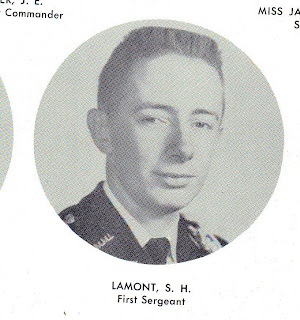
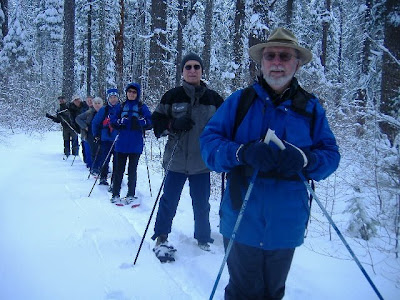
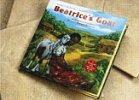

 No, this is not our home, but it is a cabin just up the road a bit from where we live at a place called Mosquito Lake.
No, this is not our home, but it is a cabin just up the road a bit from where we live at a place called Mosquito Lake.
